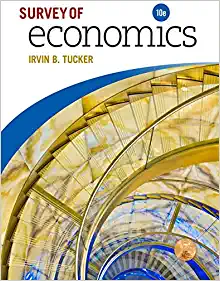Question
In 2018, the Wall Street Journal noted that an argument for the Tax Cuts and Jobs Act of 2017 was the immediate expensing of capital
In 2018, the Wall Street Journal noted that an argument for the Tax Cuts and Jobs Act of 2017 was the immediate expensing of capital investments. The tax bill allowed the immediate 100% expensing of capital investments, that is, firms could deduct some investments in the year the investments were made rather than over the span of several years.
a. From the perspective of a proponent of the tax cuts, what should have happened to the after-tax price of capital in the United States and, all else being equal, what impact would this have on domestic investment?
b. Given your discussion in (a), why might the Tax Cuts and Jobs Act of 2017 speed the process of automation in the United States? You should frame your discussion in terms of the after-tax prices to firms of capital and labor.
c. In 2020, the Wall Street Journal examined the impact of the Tax Cuts and Jobs Act of 2017. The Wall Street Journal found that the tax cuts led to increased share buybacks instead of sustained increases in investment. Thinking about organizational behavior and that the focus of many publicly traded firms is on quarterly performance (profits), why would managers increase share buybacks instead of making investments in the long-term viability of the firm?
Step by Step Solution
There are 3 Steps involved in it
Step: 1

Get Instant Access to Expert-Tailored Solutions
See step-by-step solutions with expert insights and AI powered tools for academic success
Step: 2

Step: 3

Ace Your Homework with AI
Get the answers you need in no time with our AI-driven, step-by-step assistance
Get Started


